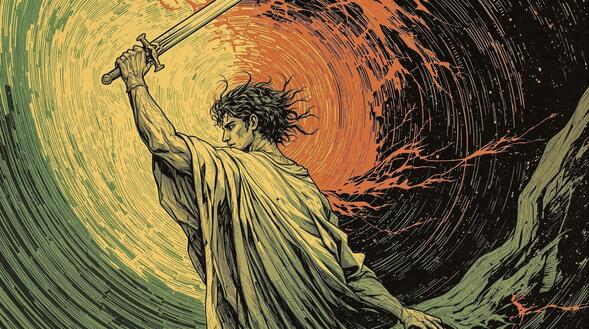In this chapter, Zarathustra addresses a group he refers to as his “brothers in war”, delivering a poignant discourse on the nature of warfare, courage, and the qualities of the true warrior.
He speaks directly to “warriors”, expressing deep affection and respect, yet also positioning himself as their “best enemy”.
Throughout his address, Zarathustra encourages warriors to embrace their inherent emotions of hatred and envy without shame, suggesting that these feelings are natural and can be transcended through greatness. He distinguishes between mere soldiers—uniformed men who hide behind conformity—and true warriors who actively seek their own enemies and battles. These warriors are urged to fight wars and seek conflict, but for their own thoughts and convictions.

You shall seek your enemy, you shall wage your war, and for your thoughts!
Zarathustra admonishes them to love peace only as a means to new wars and to prefer short peace over prolonged periods of inactivity. He extols the virtues of warfare and valor over compassion and pity, asserting that great achievements arise from courage and conflict rather than from altruism. The notion that “the good war hallows any cause” challenges conventional morality by implying that war itself imbues a cause with righteousness, rather than the cause justifying the war.
Zarathustra implores warriors to let their “highest hope” be “the highest thought of life”, indicating a pursuit of ideals that transcend ordinary human experience.
While Zarathustra appears to be speaking of war in a literal sense, a clue within the text reveals that he is speaking of wars of ideas: “You shall seek your enemy, you shall wage your war and for your own thoughts!”
